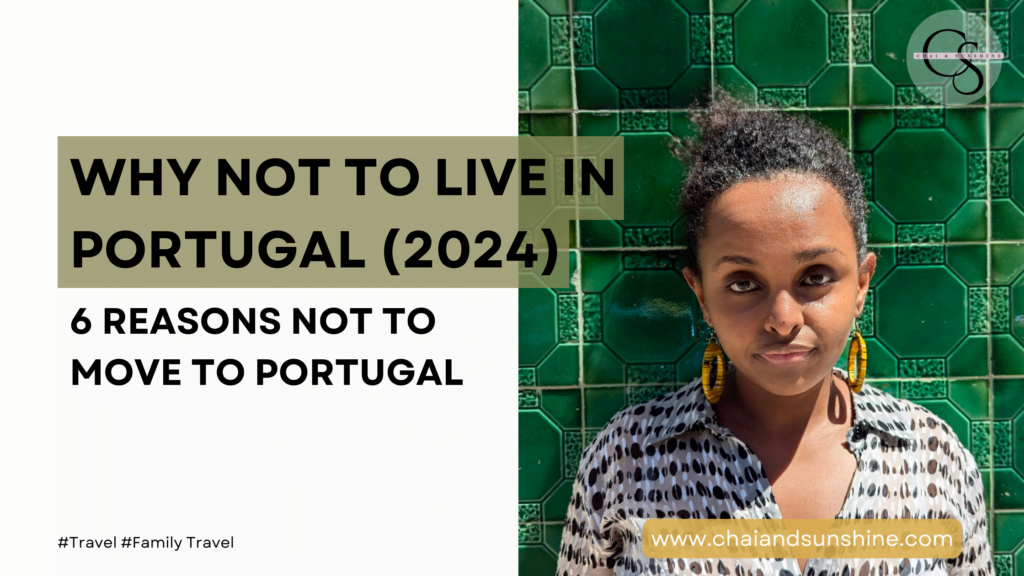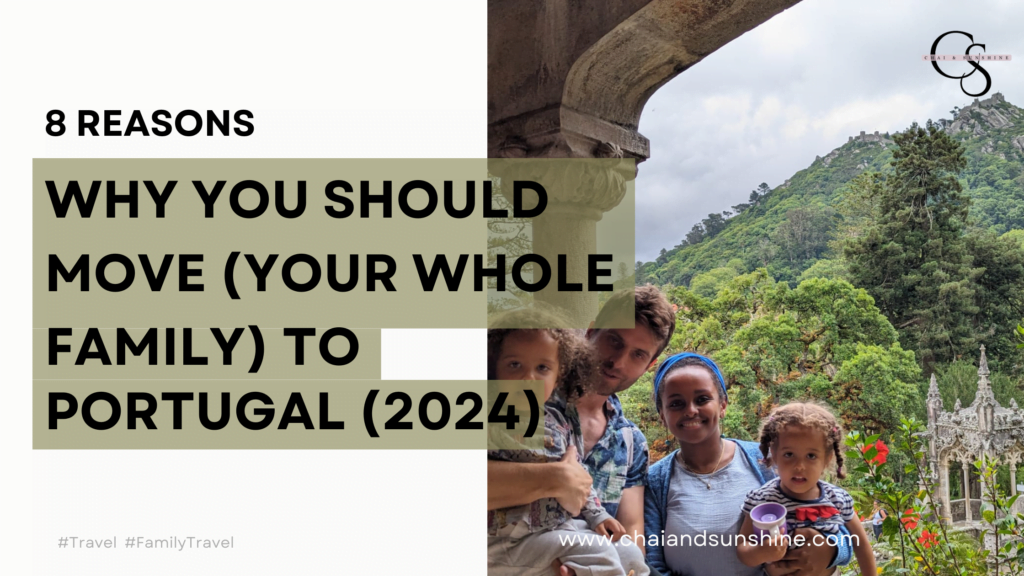European Cuisine: A Food Tour of Epic Portions

“European cuisine,” a restaurant sign said. European cuisine??? What European cuisine? European cuisine is as diverse as its languages, landscapes, and histories. We can’t simply lump them into a homogenous continental taste. So, in this post, we’ll embark on a culinary journey through the continent, exploring the rich flavours that make European food so extraordinary. And if you behave, dear reader, I may even suggest some culinary food itineraries. This way, you can eat, pray, love your way through the deliciousness. You’re welcome! Disclaimer: Europe is a vast continent with countless regional variations. This post is just a starting point for your culinary exploration. So please, get curious. This post is also limited to where I have travelled to/ food I have explored. There’s obviously soooo much more. And I am also highly biased. Potato & Beer Europe Although every country in the world has it’s own quirks, it’s clear that there is a very obvious culinary divide on the European continent. On social media, it’s been called the potato/ tomato divide. I’ve also heard it being called the beer/ wine divide. It also follows the weather (grim/ sunny), and a language divide (Germanic, Latin). IYKYK. We’re going to first look at the potato/ beer/ grim weather/ Germanic European cuisine first. Vegans, turn away NOW! German Cuisine is (Not?) the Wurst A giant schnitzel with a meagre side salad When I visited Germany nearly 10 years ago, the food was NOT something I enjoyed. As a long-time vegetarian, I was a little annoyed that even the French fries came with ham bits and were fried in animal fat. But I was pleasantly surprised on a work trip to Berlin a couple of years back where I found a wide variety of fun, delicious eating spots in the vibrant city. Unfortunately, as a vegetarian, none of these spots offered traditional German cuisine. German food is still heavily meat-based. Schnitzel, the endless variations on the wurst sausages, pork and chicken dishes dominate the main meals. I cannot attest to their deliciousness, but it does look very hearty (if not a little heart-attack-y). Beyond boiled vegetables, there are some German–vegetarian options, like the German-version of mac-and-cheese: käsespätzle. German baked goods are also delicious. They have many gorgeous dark breads, yummy cakes, and, of course, it’s the home of the pretzel (vegan!). For vegetarian versions of German cuisine, check out Forsters in Berlin. You’re welcome! British Pub Grub A Beef Wellington with a Degree from Oxford I detest “chip shops” and old-style pubs (including every Weatherspoons I’ve ever been to). They’re smelly, dusty and dark. Or worse, lit with operating-table fluorescent lights and reeking of cheap oil. The food at these places is also generally quite hit-and-miss. And more often than not, a greasy miss. Thankfully, a sub-group of British cuisine has evolved significantly from the traditional pub grub. Introducing: the gastropub. These are pubs that serve high-quality food, and often offer a better ambiance, too. Gastropubs create delicious, modern takes on British classics like the shepherd’s pie, fish & chips, and various pies. And the wonderful thing about the UK is that they cater very well to a variety of diets. Gluten-free, vegetarian, vegan, nut-free… you’ll find something delicious for everyone. The one thing I don’t mess with in the UK? Traditional British desserts. Be it the scones, sticky toffee pudding, or the god-awful Christmas cake that Brits like to set on fire, it’s a “no” from me. I’ll eat everything else, though. Except for the black pudding. (It’s made from congealed blood). Swiss Cheese & Chocolate The Swiss Win Potato European Cuisine with the Cheese Fondue Now, if I had to live anywhere in Potato Europe and settle for only having that specific European cuisine my whole life, I would choose Switzerland. I would, however, be cheating. Because Switzerland is Potato and Tomato Europe fused into one ball of deliciousness. You have the Alpine lamb dishes, hearty stews, and cheese pies. (Yup, that gorgeous Swiss cheese with the holes). And you have the lovely dishes from their French side, including raclette and fondue. And if that isn’t enough, there’s an Italian speaking area of Switzerland, too. So, hello Risotto and pasta! And don’t forget dessert. Swiss chocolate. Swiss rolls. Swiss meringue. All the cakes and pastries… *salivates* Switzerland really has it all. Belgium: Half Potato, Half Tomato Second only to Switzerland, I’d choose Belgium. Half potato and beer, half tomato and wine, Belgium is a delicious blend of culinary traditions from all across European cuisine. Think of Belgian fries to Belgian chocolates to Belgian waffles to Belgian beer… yes, it’s ALL delicious! (By the way, what we think of as “French fries” are actually Belgian. Just erroneously named by American soldiers during one of the world wars). So if you’re looking to sample different cuisines and cultures without leaving one country, go to Belgium. You’ll find French, Dutch, and Flemmish traditions, all with numerous tasty treats to offer a food tourist. Czech Beer & Dumplings Beer is Cheaper than Water in Czechia… I went to Prague, and honestly cannot remember anything I ate. This might be because the beer was cheaper than water. Tasty, light, and so diverse! Czech beer is some of the best in the world. But if you are looking for something to help you hold your alcohol down, you can check out their dumplings (knedlíky) and some of their stews. People have told me that Czech food is comfort food. And maybe it is. I just don’t remember much of anything from my trip to Prague. Except for the beer and a very scary Russian man at the bar… Tomato & Wine Europe Tomato Europe, or southern European cuisine. Yessss. The Mediterranean diet is as yummy as it is healthy (in moderation!). It’s also made for slow eating among friends and family. I’ve spent a good amount of time in France, Spain, and Italy. Our family is currently living in Portugal. If you’re looking for fun, sun, and yum, Tomato Europe is your jam. Ze French: Oui, oui, mais ouias… Apéro: A French Pre-Drinks with Cheese,
Why NOT to Live in Portugal: 6 Reasons Not to Move (2024)

Portugal. Of late, Portugal has captured hearts with its promise of sunshine, affordability, and a laid-back lifestyle. I mean, we moved here in September 2023 and haven’t looked back. But before you pack your bags and book a one-way ticket, it’s essential to consider the potential downsides. While my family and I have thoroughly enjoyed our expat adventure here, there are certain aspects of life in Portugal that might not suit everyone. Let’s dive into 6 reasons why NOT to live in Portugal. 1. Portugal’s Laid-Back Pace and Bureaucracy May Drive You Nuts Portugal is renowned for its relaxed atmosphere, which is undoubtedly a huge draw for many. But if you’re used to the fast-paced hustle and bustle of a big city, the slower pace of life here might feel like a drag. Most gyms open after 7am, and many restaurants close after lunch and before dinner, probably for a siesta. Hand-in-hand with the relaxed pace of life is Portugal’s bureaucratic system. From obtaining residency permits to dealing with taxes, expect plenty of paperwork, multiple trips, confusion, and waiting around. For example, one year in, I’m still waiting on my residency permit (I’m a South African national). I was told I’d have my residency permit within 6 weeks. I’m now in month 6, with no indication when it’ll arrive. (“Don’t worry, it sometimes can take a year,” a well-meaning Portuguese bureaucrat told me. Great.) The courts also close completely from 16 July to 31 August, adding to an already large backlog, so it’d be wise not to need legal justice in July. Despite this, I still find Portugal remarkably easy to get settled into. I think it’s because I’ve lived in South Africa, Ethiopia, and France, and have inadvertently become a professional bureaucracy navigator. But I find the laws and civil servants here to be fair and not out to make life harder. Good luck to you Americans, British, and Australian/ New Zealanders with low bureaucracy thresholds. Take some yoga and meditation classes before moving here. 2. The Cost of Living Isn’t Always as Low as You Think Portugal is often seen as a budget-friendly destination. And while it’s true that the overall cost of living is lower than many other European countries (*side-eye* UK), it’s essential to look beyond the headline figures. Rents in cities like Lisbon and Porto have risen significantly in recent years. And while you can certainly find affordable accommodation, it might involve some compromises (see Point 3). Additionally, while fresh produce is generally inexpensive, other items like imported goods and dining out can add up quickly. Also, private health insurance and private school is often recommended for expats, which can add a substantial expense to your monthly budget. Monthly ballpark figure for an expat family of 4:- includes 2 children in private school- 2-bed rental in a residential area near Lisbon= ~3,500 EUR/ month Make sure you’re on top of your budget before moving here. 3. Portugal’s Real Estate Market: Yikes! The Portuguese real estate market can be a minefield for locals and foreigners alike! In cities like Lisbon and Porto, property prices are wildly overvalued because of a housing shortage. The influx of foreign investors seeking Golden Visas through property investment have not helped. Conversely, rural areas, while offering a charming escape, come with their own set of hurdles. From complex legal restrictions to dilapidated properties (think high-priced ruins), finding the plot can be daunting. And new builds, while promising modern living, often involve navigating a maze of bureaucratic red tape and dealing with unscrupulous developers. Then there are the… aesthetic challenges (see pictures below). Many Portuguese buildings, especially older ones, lack the curb appeal we’re accustomed to. Graffiti, peeling paint, and the absence of elevators are common. It’s a stark contrast to the postcard-perfect Portugal often portrayed. So, if you’re a first-time buyer with limited funds (like us), you might want to consider this as a reason why not to live in Portugal. 4. Local Jobs and Salaries May Not Pay the Bills Portugal’s economy has been improving, but job opportunities, especially for English speakers, remain concentrated in the major cities of Lisbon and Porto. If you’re looking to work in a specific industry or field, your options might be limited outside these urban centers. But even if you find a job, the remuneration may be a big reason why not to live in portugal. With a minimum monthly wage of 820EUR in 2024, and highly skilled workers often stuck with salaries below 3,000EUR, you might struggle to make ends meet. And that’s saying nothing of all the taxes! What most expats try to do, and what many Portuguese are starting to do, is working remotely for international companies. In fact, many young Portuguese are leaving Portugal in search of better jobs in the rest of Europe. 5. Economic Outlook Concerns While Portugal has made significant strides in maintaining steady economic growth, the country still faces challenges. Unemployment rates remain relatively high at 6.5%, and the economy is heavily reliant on tourism. This means that Portugal’s economic outlook can be susceptible to external factors, such as global economic downturns or changes in travel trends. The Covid-19 pandemic was a particularly nasty time for the country. 6. The Portuguese Summer is a Double-Edged Sword Portugal enjoys a fantastic climate for most of the year, but the summers can be incredibly hot and dry. While the beaches are lovely, prolonged exposure to high temperatures and UV can be challenging, not to mention dangerous. Personally, extreme heat makes me really cranky. NOT great in general, but highly problematic when you’re a mom to twin toddlers. So, if you’re considering moving to Portugal, bear in mind how you extreme handle heat and make a plan, proactively. For me, I’ve found myself staying indoors with a fan pointed at me 24/7 throughout the entirety of August. The twins’ grandparents have whisked the girls to safety, and away from hot-angry-mommy. On top of that, many parts of Portugal experience water shortages during the summer months, which can
10 Best Places to Travel as a Black Woman (2024)

*A post for black women* Girl, we all know the world isn’t always built for us. As Black women, merely existing can feel like an obstacle course, let alone venturing out to explore a new place. And with travel, there’s a whole extra layer of questions: is it safe? Will I be welcome? Will people want to touch my hair? On top of that, the usual worries about being a woman on the road come into play. But guess what? We deserve to experience the world too! That’s why I’ve compiled a personal list of my 10 best places to travel as a black woman. Whether you’re looking for tropical, cultural, or big city living, I’ve got you! So pack your bags, ladies – it’s time to see the world! Travel Destination Criteria I thought I’d start out with the set of rules I’ve used for picking the places I’ve chosen. So, here’s my criteria for what makes somewhere one of the best places to travel as a black woman: 1. Safety Duh! Safety is priority number one, of course. We all deserve to feel secure while exploring new places. So, you won’t find any war zones or places they do terrorism or kidnapping on this list. No places with excessive crime, either. We face enough dangers because of our appearance, and we don’t usually have the best odds in hospital situations. So, on this list, we’ll stick to the safest places that even mom won’t worry about. 2. Racism (or Lack Thereof) This is a big travel criteria as a black woman. Because who wants to fend of racism while on holiday, right?! And while every individual’s experience in these places might be different, I’ve gone with looking at the general racism I felt in these places. Because, while we can’t avoid it completely, some destinations are more welcoming than others. 3. I’ve Been There Personally So, while I am well-travelled, this criteria narrows down the list significantly. But hear me out. Anyone can do a hypothetical “best places to travel as a black woman” list. But I think there’s still something to be said for actually having lived experience in those places. 4. Cultural Awareness What is cultural awareness? And why is this different to racism? Sit down, I’m glad you asked. A place with cultural awareness of black people is one where people are accustomed to seeing and catering to Black travellers. One where they don’t gawk or try to touch your skin or hair. Or ask weird questions like “Do you know Oprah? Beyonce? Or Rihanna?” – true story. (Unfortunately, no. We don’t run in the same circles.) So, while a place might not be considered “racist”, there may be a lot of unintentional cultural insensitivity that may be annoying to navigate on holiday. 5. Fun! Of course, no list is complete without considering the fun factor! These destinations offer not just safety and respect, but also beauty, adventure (but not the warzone kind), and amazing experiences. Buckle up! Here are the best places to travel as a black woman (in no particular order): 1. Reunion Island, France Okay, the “France” part is slightly misleading. Because this gorgeous island is actually located off the east coast of Africa, in the vicinity of Mauritius and Madagascar. How it still belongs to France is a history lesson I won’t be giving. But how amazing it is, I can tell you. (I lived there for about 7 months). From the natural offerings (tropical forests, oceans, volcanoes), to lovely restaurants, stunning beaches, and fun events throughout the year, Reunion is as close to paradise as it gets. Also, its as modern as any big city with all the amenities you can ask for. The population is super mixed so you’ll be able to find whatever you need (hair care, foundation shades, braids). So, take your Duolingo French with you to Reunion Island and thank me later. 2. Lisbon, Portugal Full transparency: we live near Lisbon now. But there’s a reason why we live here. Many, in fact. (I wrote a whole post about it). Lisbon has that European-city charm, great weather, fun, forever-partying people, and it’s also super accepting to people of all colours. Because while my mixed-race family has had trouble integrating in Africa, we’ve had no issue here. They also operate on “Mediterranean time”, which means you wake up at 10am, have a nap at 3pm, before partying the night away. It’s a veritable festa. Lisbon has it all. If you’re looking for something more cultural, you can definitely check out the palaces in Sintra (30 mins north). Or perhaps lounging around on a beach is more your style? Visit Costa da Caparica (30 mins south, pictured above). 3. Havanna, Cuba My heart is in Havanna, ooh na na… Cuba is multicultural. You can go there on any budget. (I went on the Broke Ass Student Plan). And, of course, the nightlife is amazing. But it’s also super safe, very multicultural, and absolutely stunning! (Who knew communism could look so good?). On top of that, the rum was cheaper than water in some places, and Cuban cigars are pretty cheap. So, you can fully indulge your vices under the guise of “cultural integration”. 4. Reykjavik, Iceland My friend, go to Iceland in the winter. I cannot promise you multicultural. (These statues were the closest I got to finding another brown person). I cannot even promise you sunshine and good weather. But the cosiest Christmas atmosphere in the most ethereal place, you will find. Lovely bars, restaurants, and most importantly, people, too. And the sun rises at 10am and sets at 4pm in December. So you can wake up late after partying for 12 hours. (Check out their blue lagoon hot springs if you’re into something more chill.) 5. London, England Aaahh London. My first time visiting was during a week of excellent weather in July. The sun was shining. People were singing (for money) in the streets. Those
Travelling with Twin Toddlers: 7 Tips We Learned The Hard Way

Travelling with twin toddlers is not easy. But there are ways to lessen the pain! Here are 7 toddler travel tips we learned the hard way.
8 Reasons Why You Should Move To Portugal (2024)

Sunshine, safety, and fun. Discover how Portugal’s affordability, friendly locals, and exciting activities for all ages made it our dream home and why you should move, too.
